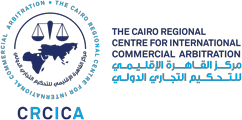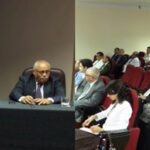
Key Procedural Issues in International Arbitrations Seated in Cairo: The Case for Pragmatic and efficient Solution, 18 June 2014
Jun 18 2014
On June 18, 2014, Dr. Karim Youssef, partner and head of Middle East arbitration at Amereller Legal Consultants (associated with Mena Associates in Cairo) and associate professor of Law at Cairo University School of Law, gave a lecture titled "Key Procedural Issues in International Arbitrations Seated in Cairo: the Case for Pragmatic and Efficient Solutions." The lecture was intended to be interactive and focused on practical aspects of doing document production in Cairo. The lecture instigated useful and informative reactions from the floor about the regulation of document production by the parties, under the Egyptian Evidence Law in Civil and Commercial Matters, and under the IBA Rules on the Taking of Evidence. The interaction with the audience that followed extended to broader aspects of arbitration in Egypt and the day-to-day practical experiences of arbitration practitioners, lawyers generally but also practitioners with non-legal backgrounds, which contributed to enriching the discussion.
Participants represented law firms, schools of law, construction and engineering companies, holding companies, industrial corporations, judicial authorities, general prosecutions, state courts, ministries, investment companies, banks, tourism sector, oil and gas corporations, maritime and social insurance companies, trade firms and international organizations.
View Details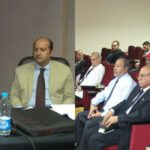
Mediation in Construction Disputes: Reality and Perspectives
May 29 2014
Construction Disputes was the thematic focus of the May Breakfast Seminar. Dr. Ahmed Fathi Waly, Assistant Professor – Department of Construction and Architectural Engineering at the American University in Cairo, delivered a lecture on "Mediation in Construction Disputes: Reality and Perspectives". The speech highlighted the features and importance of mediation in construction disputes. The disputes settlement mechanism in FIDIC Contracts was tackled with particular focus on mediation. Moreover, the presentation handled the role of mediators in construction disputes, as well as the difference between mediation and negotiation. Following discussion of case studies, Dr. Waly suggested two recommendations; the first to raise the awareness of all construction stakeholders, owners, consultants and contractors alike, as to the privileges of mediation and the second to consider adding a mediation provision in construction contracts. The presentation triggered an interesting questions and answers session. Attendees were representatives of private law firms, construction companies, schools of law and public sector general authorities directly involved in the construction industry.
View Details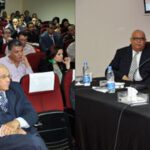
Applicable Law in Petroleum Arbitrations
May 07 2014
On May 7, 2014, in a biographical narrative structure of his lecture entitled "Applicable Law in Petroleum Arbitration", Prof. Dr. Ahmed S. EL KOSHERI, Senior Partner of Kosheri, Rashed and Riad Law Firm and Chairman of CRCICA's Advisory Committee, shared with the audience his sixty-year record of experiences in tackling petroleum-related arbitrations. In a chronological fashion, the lecture arrayed the significant developments in oil concession law with highlights on the various legal and political circumstances affecting such developments over decades.
He stressed that the dominating feature of international petroleum contracts, in the past, was a lack of balance between the rights and obligations of host states and foreign petroleum companies, which, in many cases, involved an obvious negligence of national law systems. Concession agreements had been unilateral in nature in that they benefited mainly the oil companies and not the oil wealth holder. However, following a number of political changes and OPEC critical decisions, the practical scene started to change striking a relative balance between rights and obligations. One of the most significant model examples, in this concern, was the Government of Kuwait versus Aminoil Company Case after Kuwait's nationalization of the company in 1978 and the termination of its petroleum concession. As a counsel for the Kuwaiti Government, Prof. Dr. El Kosheri succeeded in convincing the tribunal with the legitimacy of the nationalization in the light of international law despite counter-calls to internationalize the case. The award supports the legitimacy of the nationalization against reasonable compensations. According to the lecturer, the legal principles enshrined in the Kuwait/Aminoil award provided a model for many tribunals to follow.
Prof. El Kosheri concluded that petroleum arbitrations still unfold many developments regarding the balance between rights and obligations of big and high tech foreign companies on one hand and national companies of developing countries with lesser acquisitions and abilities on the other.
The seminar scored the highest level of attendance in the monthly Wednesday One Seminars with 120 participants from Law firms, public authorities, universities, national and inter-Arab holding companies, embassies, oil companies, banks, industrial corporations, construction companies and state courts. It was particularly honored by the presence of many of Professor El Kosheri's colleagues, including Professors Georges Abi Saab and Foad Riad.
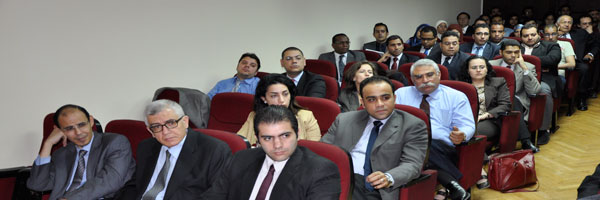
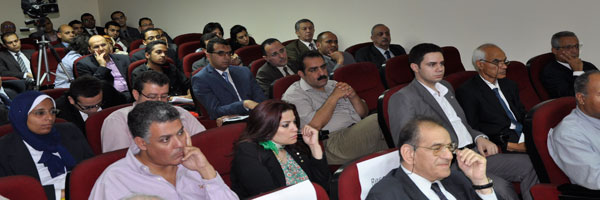
View Details

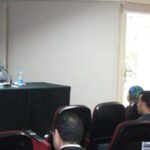
The Stages of Mediation
Apr 30 2014
In the April Mediation Breakfast Seminar titled "The Stages of Mediation", Dr. Maged Ackad, Founder of Ackad Law Office, CEDR Accredited Mediator and Mediation trainer, analyzed the smooth complementarity among the different phases of mediation. After explaining the different types of the mediation agreement, Dr. Ackad categorized the stages of the process into three basic ones; the preparation stage, the investigation stage and the negotiation stage. All three stages reveal a high level of interaction between the mediator and parties. At the end of the lecture, there was a guiding comparison between post-procedures process in two juxtaposed cases; the success and the failure of mediation. The seminar closed by a lively debate that revealed the increasing interest in mediation. Attendees represented holding companies, general authorities, schools of law, private law firms, Arab Investment companies and construction consultancy firms.
View Details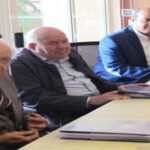
CRCICA Hosts the Oral Hearings of the First Annual SHALAKANY LAW OFFICE ARBITRATION MOOT (SAM), Cairo
Apr 09 2014
On 9 April 2014, CRCICA hosted the Oral Pleadings of The Shalakany Law Office International Commercial Arbitration Moot (SAM). SAM is an annual competition of teams representing law schools throughout Egypt and is intended to stimulate the study of international commercial law and to promote and develop interest and skills in international commercial arbitration. The nature of the Moot is intended to lead participants to interpret the texts of international commercial law to develop an expertise in advocating a position before an arbitral panel. The Moot is designed as an educational learning program in the form of a competition. It is not intended to be a competition with material benefits.
Shalakany Law Office organizes the SAM on a pro bono basis as part of its efforts to promote and support legal education in Egypt.
The pleadings were divided into four teams of students coming from the Cairo University English Section Law, IDAI Sorbonne (Cairo University French Section Law) and Assuit University.
There were two groups of arbitral tribunals. Members of the tribunals were Prof. Dr. Ahmed S. EL KOSHERI, Senior Partner of Kosheri, Rashed and Riad Law Firm; Chairman of CRCICA's Advisory Committee, Prof. Dr. Fouad A. Riad, Former Judge on the International Criminal Tribunal for War Crimes in the former Yugoslavia (ICTY) and Member of the National Council for Human Rights (NCHR), Dr. Naglaa Nassar, Managing Partner of Nassar Law Office, Dr. Khaled El Shalakany, Managing Partner of Shalakany Law Office and Dr. Mohamed Abdel Raouf, CRCICA Director. Ms. Dina Hassan of El Shalakany Law Office and Ms. Menna Sadek of CRCICA also joined the tribunals in representation of junior practitioners.
Students worked on cases as counsels, they filed written statements and delivered oral pleadings. The tribunals were very impressed by the unique performance of students. The IDAI Sorbonne team won the competition and was awarded the first prize
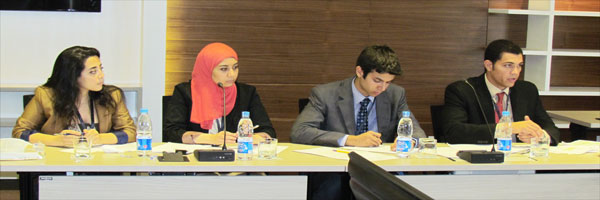
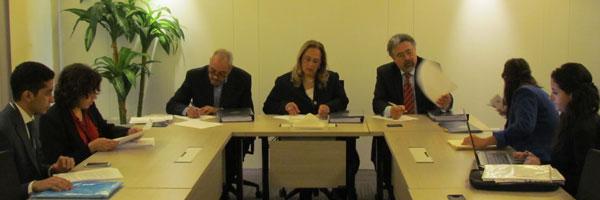
View Details

